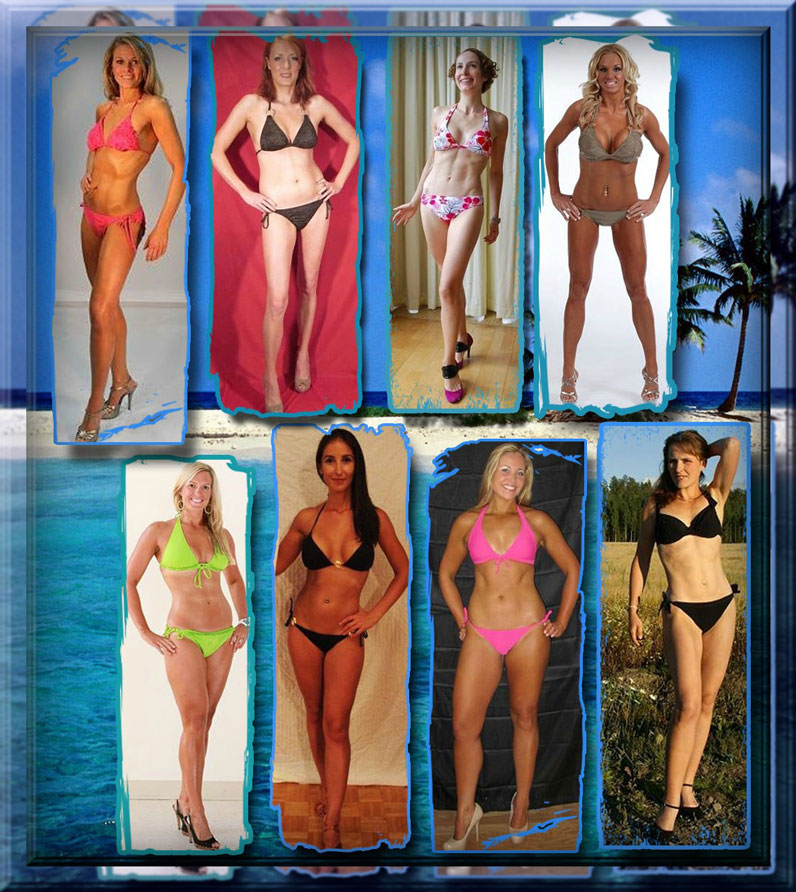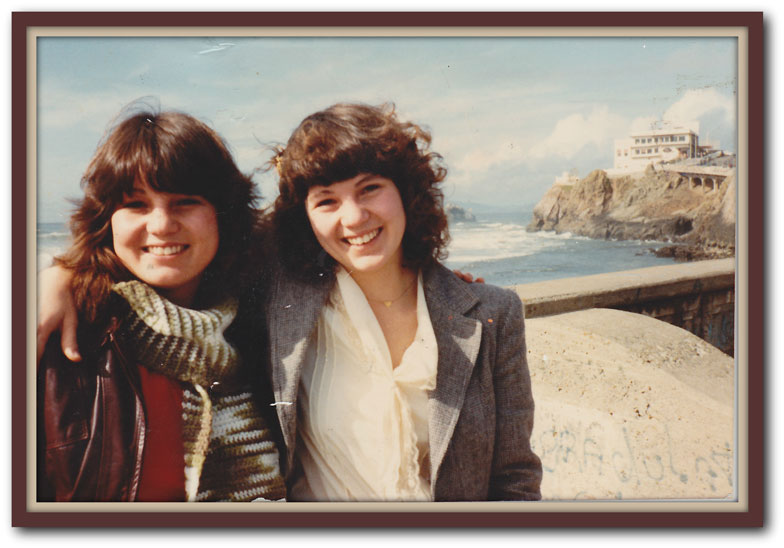
These are some of the very first Venus Transformation contest winners ever. They trusted John and Brad back in the day. They each have their own unique genetics and nothing stopped them from becoming their best.
You can achieve your best regardless of your genetics.
These are some of the very first Venus Transformation contest winners ever. They trusted John and Brad back in the day. They each have their own unique genetics and nothing stopped them from becoming their best. John Barban and Brad Pilon learned from the trials and errors of these girls struggles to lose fat and build their best shape.
The experiences and data collected on these first contest winners, along with those of us in the subsequent transformation contests and other research enabled John to develop a new diet protocol called the “The 12 week Undulating Metabolic Override Program”.
The protocol included in the Venus Factor 12-week Fat Loss System is designed to help prevent “crashing” and allow your body some recovery from a calorie deficit, teach your body to become efficient at utilizing protein for muscle repair and recovery, and to teach your body to become more efficient at burning carbohydrates.

The secret to the Venus Factor is the magic of the support community along with hormone research and the experiences of those who succeeded and sustained their fitness level.
What about genetic differences in performance?
- There is research to show genetic differences effect performance.
- We constantly compare ourselves with others in the gym and watching sports events.
- We can’t help doing that, but you should at least try and compare yourself to someone of very similar genetics.
- Genetics play a huge role in success; it plays a bigger role than anyone ever wanted to admit.
- It doesn’t mean you are not a good person or equally of value as a human if you don’t have specific genetic gifts.
- It doesn’t seem fair. No matter how hard you practice you won’t be the same as someone who is truly gifted. Life is not fair.
- If everything was equal the person who did the best hardest work wins. This is not what happens. Genetics plays the bigger role.
- We are all unique.
- But at the same time genetics should not be a reason to not work hard to be your best.
- It is not an excuse to not work hard to achieve your best. As far as performances compare yourself to your own performance; improve yourself.
- What you can achieve?
- Knowing about genetics is great way to understand what other people have achieved.
- John and Brad go into great detail into how genetics affect various sports.
- It does not always mean if you train harder you will get the same results as someone else.
- It does not mean you should give up training.
- Everyone is capable of change.
- Don’t base any of your metrics on performance.
- All that matters is your own results.
- How you respond to exercise and diet is unique to you. You can try things that others do, but it does not mean it will work for you. Also what works for you will change over time. You will have to experiment to find what works for you.
John gives a long explanation about how genetics affect certain sports – I almost spit out my coffee on my screen!
Oh my gosh I never knew! When John described specifically what on the body makes a good runner I almost spit my coffee out all over my screen. Why? Because I’ve spent over 30 years trying to be good runner and I am completely the opposite of what makes a good runner. The good news is that it does not really matter. I always concentrated on merely improving my own PR (Personal Record).
Once after my dear husband Randy was my “support team” for a 50 mile race he said it was funny to see me during various parts of the race. I didn’t look like anyone else there, I was short and stocky, with thick limbs, totally the opposite of what John describes in the podcast, even for what makes a good runner in the hot climate. It was so crazy to learn this today.
It makes me realize that I’ve always done well with running in spite of having the completely wrong genetics for good performance. Even when I was slightly over weight I typically placed in most races in the top 1/3. There were even a few times when I placed in the top three for my age group, and twice in my life I placed first overall (in smaller races). I love running and I still do. So having the completely wrong genetics didn’t stop me from achieving my best and enjoying a sport that I love.
Once I did the Venus workout system for awhile I found that it improved my running performance. Earlier this year, at age 52, I completed my best PR for the half marathon and a then two months later I got a first place for my age group the Komen Rock The Race Sacramento 2013 5k. I still very much enjoy the sport of running.
My own genetic experiment
Brad talks for a moment about the nature vs. nurture controversy. Not by choice but I have had a chance to see a bit about what can happen a lot with nature vs. nurture in my own life. I have an identical twin and we are both nearly 53 years old now. I mentioned a bit about my upbringing and showed a picture of my twin and I when we were little girls in “Ten Thousand Ways that Won’t Work“.
My twin and I have not lived together since we were eleven years old. We have taken two very different paths in life. Since we have identical genetics we can both look at each other and it’s like looking in the mirror and seeing what could have been if we each made different lifestyle choices. It gives us each a very unique perspective.

My identical twin and I were 21 years old in this picture. Only about 50% of my friends are able to guess which is me.
You can change your shape. You can achieve your dream. You can affect many things that you have control over. You can build muscle. You can lose fat. You do not have to accept where you are. You do not have to accept being over weight or obesity, regardless of your age or the amount of body fat you have at the moment. At some point you may have to accept certain genetic limitations, but you will never know until you try.
There are no athletes in my family. There was no example for me to see what I could achieve for myself. I always suspected I might have some athletic ability. There were a couple of times when I was young when I came close, but no where near what I achieved after finding the Venus Factor at age 50.
It wasn’t until I strove for the Venus Ideal and learned the truth about my nutritional needs that I far surpassed what I ever dreamed possible for myself. At almost 53 years old I believe I have now reached my genetic potential. Now I’m working just to stay healthy, functional, have a good quality of life (as much as in my control), and to keep a shape that I feel good about in my every day life. I am enjoying the Venus lifestyle very much and I have maintained my level of fitness for several years now. I’m still pretty darn happy about that.
-Ro
Find out what John and Brad have to say about Genetic Differences in Performance:
IMMERSION Clients May Login and Download Podcast Here
Not a Venus Index IMMERSION client? Click here to find out more…
Speak Your Mind
You must be logged in to post a comment.